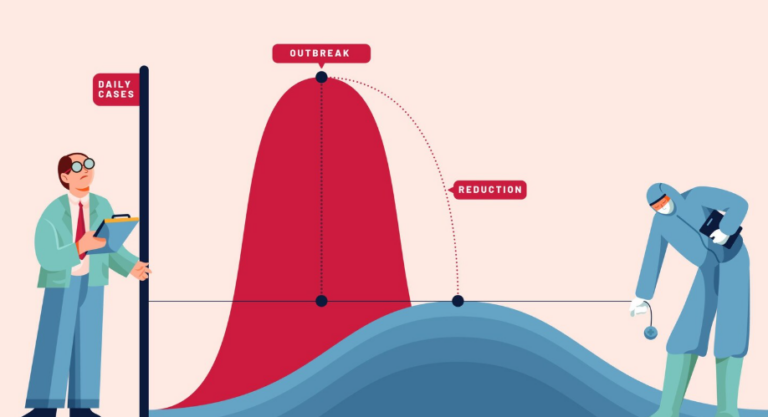
Introduction
Data science, traditionally associated with driving business growth and innovation, is increasingly being used for social good. This shift sees data scientists leveraging their skills to address some of the world’s most pressing challenges—ranging from healthcare and education to environmental sustainability and poverty alleviation. So also, some urban learning institutes offer data-based courses that are specifically tailored for covering how data science can be used for social good—for instance, a data science course in Kolkata. The potential for data science to drive positive change is immense, as data can inform evidence-based policies, target resources effectively, and empower organisations to create impactful solutions. Here’s a look at how data science is making a difference through social good projects, with examples of impactful applications and best practices for fostering long-term change.
The Role of Data Science in Social Good
The applications of data science for effecting transformations that have positive societal impacts include analytics, machine learning, and statistical techniques. These techniques can be used to generate insights that can substantially benefit society. By extracting patterns and trends from data, data scientists help organisations make informed decisions that improve lives, enhance public welfare, and promote equality. Social good projects often rely on collaborations between governments, non-profits, and tech organisations to address systemic issues through innovative, data-driven approaches. Unlike commercial data science, which often prioritises profit and efficiency, social good projects focus on ethical considerations and societal impact, aiming to improve the world for the collective benefit.
Key Areas of Impact
Data science for social good spans multiple domains, including healthcare, education, environmental sustainability, and public safety. Here’s how data science is making a difference in these areas:
Healthcare and Pandemic Response
The transformative changes that the application of data science technologies have brought about in healthcare are quite evident. By analysing medical data, researchers can predict disease outbreaks, improve patient care, and optimise resource allocation. During the COVID-19 pandemic, data science played a critical role in tracking virus spread, projecting infection rates, and prioritising vaccine distribution. Predictive models helped healthcare providers who acquired skills in data analytics by attending a data science course in Kolkata gear up for patient surges, while contact tracing apps assisted in identifying potential exposures.
Another impactful project in healthcare includes using machine learning algorithms to diagnose diseases early. For instance, algorithms that analyse imaging data for early detection of diseases like cancer are revolutionising preventive healthcare. Projects like these, supported by collaborations with hospitals and universities, have the potential to save lives and improve patient outcomes significantly.
Environmental Sustainability
Data science technologies have played a crucial role in addressing climate change and promoting environmental sustainability. By analysing large datasets on pollution levels, weather patterns, and wildlife populations, data scientists can support conservation efforts and develop sustainable solutions. Projects focused on reducing carbon emissions, for instance, use predictive modelling to optimise energy consumption in buildings, while real-time monitoring systems detect sources of pollution and alert authorities.
Satellite imagery and data analytics are increasingly being used to monitor deforestation in real-time. Organisations like Global Forest Watch track tree cover loss worldwide, allowing governments and conservation groups to take immediate action to prevent illegal logging and protect ecosystems. Similarly, oceanography projects analyse data on sea temperature and plastic pollution to support marine conservation efforts, protecting biodiversity and addressing critical environmental challenges. Researchers and scientists who are keen about contributing to social welfare enrol for specialised technical courses that equip them to contribute to environmental conservation initiatives.
Education and Learning Outcomes
Data science is also transforming education by identifying gaps in learning outcomes and improving accessibility. By analysing student data, educational institutions and non-profits can identify at-risk students and develop personalised learning plans to support them. Predictive analytics can improve graduation rates by identifying students likely to drop out and intervening with targeted support.
One example of impactful work in education is the “Learning Equality” project, which uses data-driven insights to deliver quality educational content in offline environments where internet access is limited. By providing curated learning materials and tracking students’ progress, this project empowers underserved communities and promotes education equity. Additionally, tools powered by data science help educators improve their teaching methods, adapt curriculum content, and identify effective learning strategies for diverse groups. Both in academics and in sports, mentors who have completed a data science course have proved their ability to ensure peak-level performance of students.
Poverty Alleviation and Economic Development
Data science can play a crucial role in poverty alleviation by identifying factors that perpetuate economic hardship. Projects that analyse data from underserved communities can inform policymakers on where to allocate resources, create job opportunities, and improve public infrastructure. For example, data analysis on income levels, unemployment rates, and healthcare access helps determine high-need areas, supporting initiatives that uplift economically marginalised populations.
For instance, the World Bank’s Poverty Prediction Project uses data on household expenditures, education, and employment to identify poverty trends across different regions. This approach enables targeted interventions, such as providing microloans or vocational training to those in need. In another example, the Hunger Map Project by the World Food Programme leverages data science to identify areas of acute food insecurity, allowing for timely responses to hunger crises and enabling efficient distribution of resources.
Public Safety and Crime Prevention
Data science is instrumental in improving public safety by predicting and preventing crime. Law enforcement agencies are increasingly using predictive analytics to allocate resources efficiently and reduce crime rates. Crime mapping tools analyse historical data to identify high-risk areas and determine patterns in criminal activity, enabling better-targeted policing.
One prominent project in this space is “Crime Hotspot Analysis,” which helps cities allocate police resources more effectively by pinpointing areas with high crime rates. Data scientists work in tandem with police personnel, who too have mostly taken a data science course, to analyse historical data on various factors, including demographics and economic conditions. Together they develop predictive models that support safer communities.
Best Practices for Data Science Projects in Social Good
While leveraging the transformative potential of data science for social welfare projects, ethical considerations must not be overlooked. Here are some best practices you will learn in an inclusive data science course that will ensure that you do not transgress what is considered the ethical usage of data:
- Data Privacy: Ensure that personal and sensitive data is protected, as misuse of data can cause harm to individuals and communities.
- Transparency: Keep stakeholders informed about data sources, methods, and intended uses, fostering trust and accountability.
- Inclusivity: Engage communities directly impacted by the project to understand their unique needs and ensure solutions are relevant.
- Sustainability: Design projects for long-term impact by focusing on scalability, ongoing monitoring, and adaptability to changing conditions.
- Bias Mitigation: Carefully examine algorithms for biases that could unintentionally disadvantage certain groups, promoting fairness in outcomes.
Looking Ahead: The Future of Data Science for Social Good
The future of data science for social good is promising, with increasing collaboration between the public, private, and nonprofit sectors. As data access and technological capabilities grow, so does the potential to address more complex societal challenges. Artificial intelligence (AI) and machine learning advancements will enable data scientists to develop even more sophisticated models, increasing the impact and reach of social good projects.
Data scientists, especially those who have completed a specialised data science course that covers the applications of data technologies for social good, help to create a more equitable, sustainable, and prosperous world.







